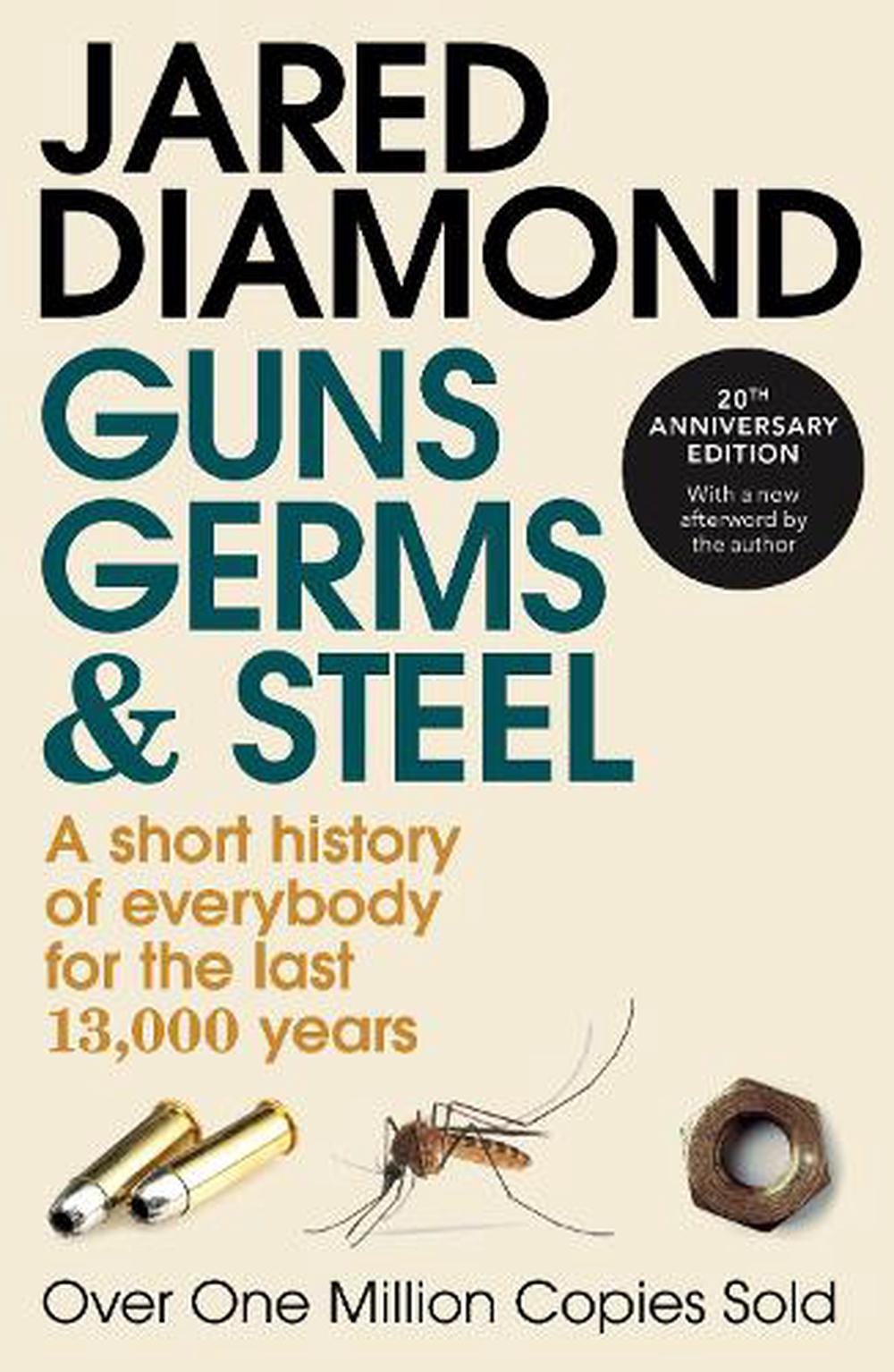
Guns, Germs and Steel
The MILLION-COPY bestselling history of everybody (20th Anniversary Edition)
$28.00
- Paperback
592 pages
- Release Date
2 July 1998
Summary
‘A book of big questions, and big answers’ Yuval Noah Harari, bestselling author of Sapiens
A short history of everybody for the last 13,000 years; now with a new afterword to mark the 20th anniversary of publication.
Why has human history unfolded so differently across the globe? And what can it teach us about our current crisis?
Jared Diamond puts the case that geography and biogeography, not race, moulded the contrasting fates of Europeans, Asians, Native Americans,…
Book Details
| ISBN-13: | 9780099302780 |
|---|---|
| ISBN-10: | 0099302780 |
| Author: | Jared Diamond |
| Publisher: | Vintage Publishing |
| Imprint: | Vintage |
| Format: | Paperback |
| Number of Pages: | 592 |
| Release Date: | 2 July 1998 |
| Weight: | 514g |
| Dimensions: | 198mm x 129mm x 38mm |
You Can Find This Book In
What They're Saying
Critics Review
A book of remarkable scope… One of the most important and readable works on the human past
The most absorbing account on offer of the emergence of a world divided between have and have-nots… Never before put together so coherently, with such a combination of expertise, charm and compassion * The Times *A book of remarkable scope… One of the most important and readable works on the human past * Nature *A prodigious, convincing work, conceived on a grand scale * Observer *This is the book that turned me from a historian of medieval warfare into a student of humankind – Yuval Noah Harari * Week *Fascinating, coherent, compassionate and completely accessible * Sunday Telegraph *A book of big questions, and big answers * Yuval Noah Harari, author of Sapiens *Monumental and monumentally good – William Leith, 4 stars * Scotsman *Diamond’s sideways-on view of human development may well establish its author as one of the very few scientists to have changed the way we think about history * Sunday Telegraph *A book of big questions, and big answers – Yuval Noah Harari * Geographical *One of the best books I’ve reviewed this year. – Lucille Turner * Bookmunch *
About The Author
Jared Diamond
Jared Diamond is the Pulitzer Prize-winning author of Guns, Germs, and Steel, which was named one of TIME’s best non-fiction books of all time, the number one international bestseller Collapse and most recently The World Until Yesterday. A professor of geography at UCLA and noted polymath, Diamond’s work has been influential in the fields of anthropology, biology, ornithology, ecology and history, among others.
Returns
This item is eligible for free returns within 30 days of delivery. See our returns policy for further details.




